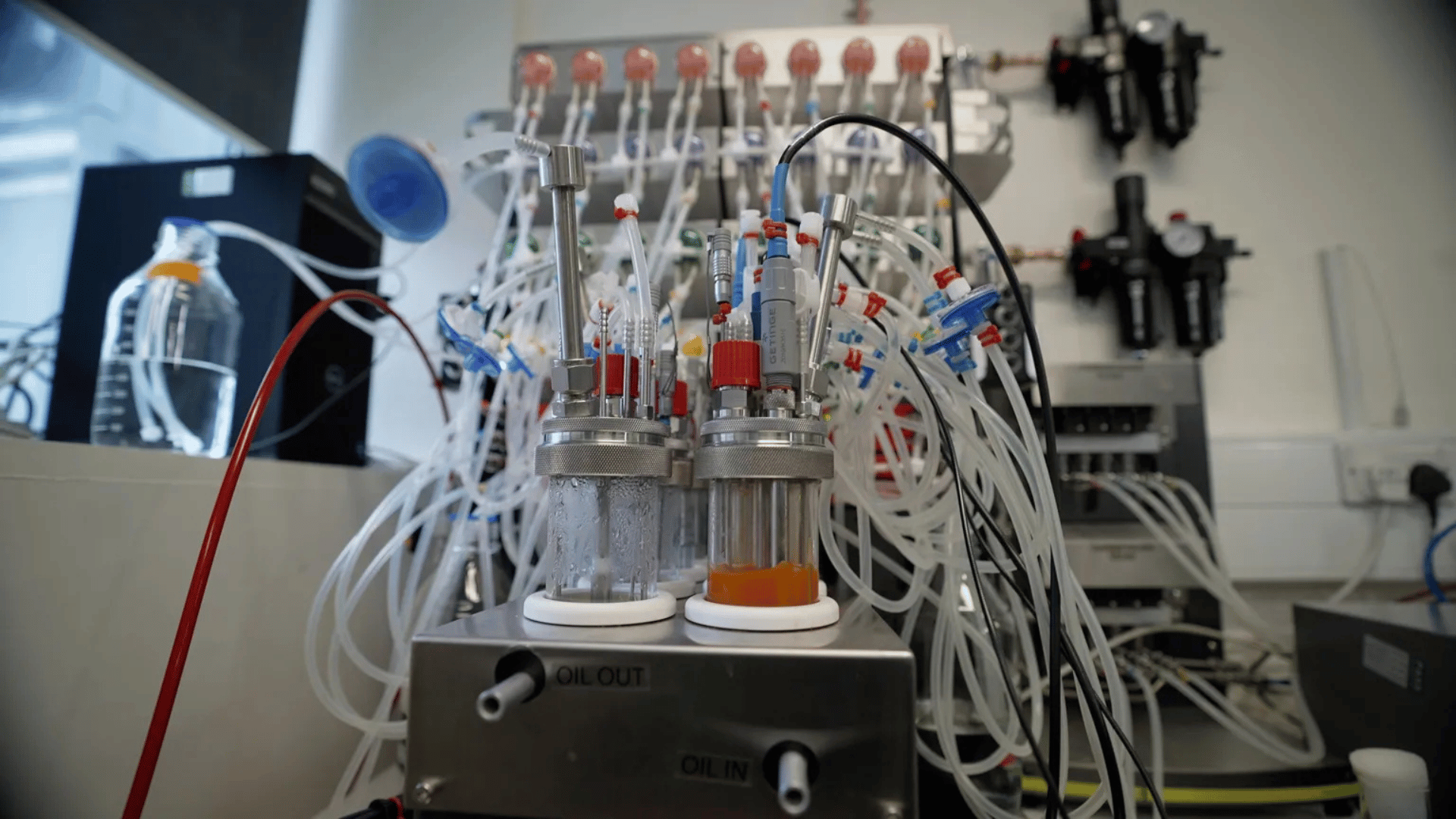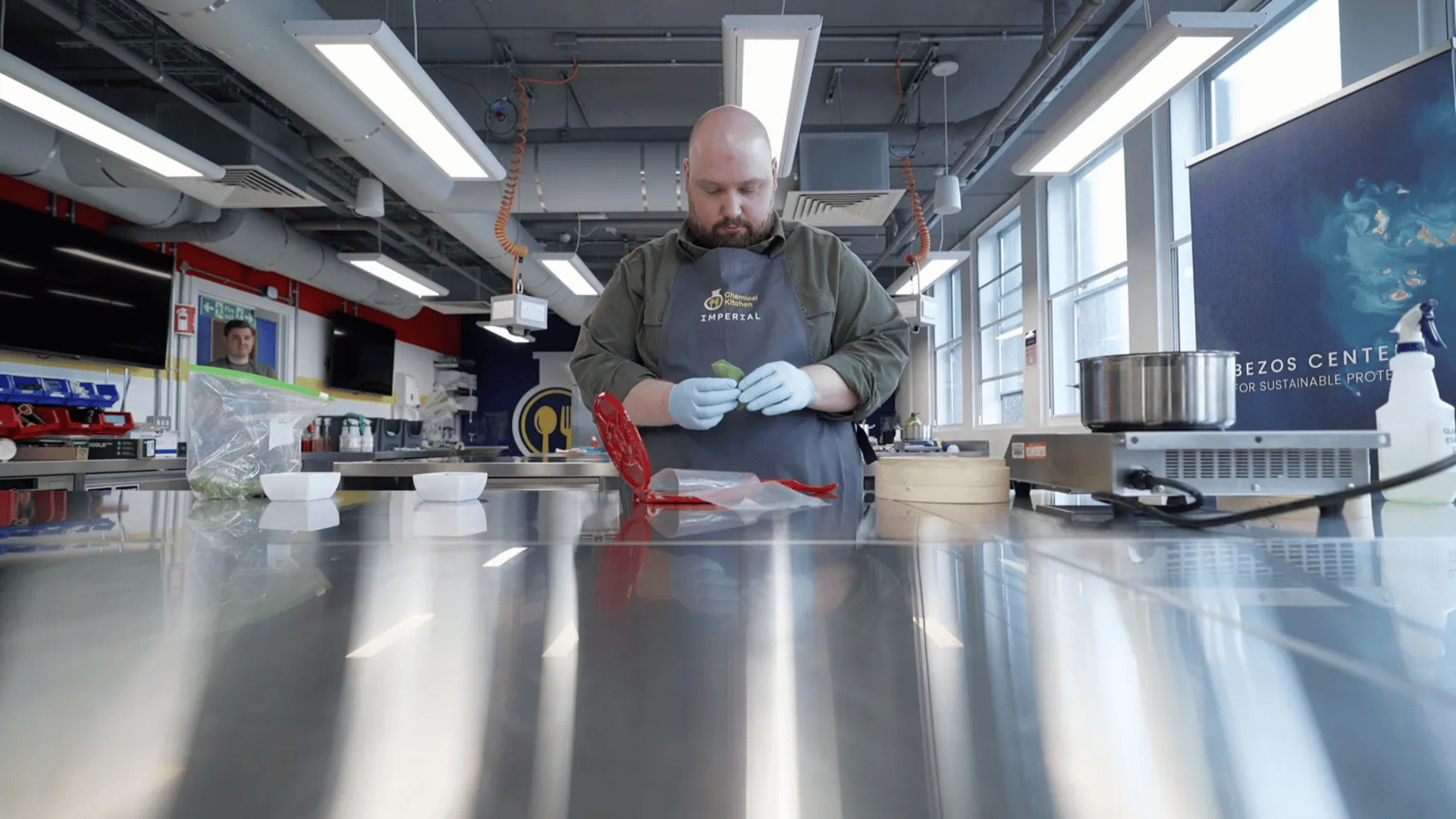A European Space Agency (ESA) project is testing the viability of creating lab-grown food such as mashed potatoes, steak, or desserts in low gravity and higher radiation in space and on other worlds.
Future of Space Nutrition

Dr. Aqeel Shamsul, CEO and founder of Bedford-based Frontier Space, stated that lab-grown food will be crucial to humanity’s goal of being a multi-planetary species. Frontier Space is developing the new concept with researchers at Imperial College, London.
“Our dream is to have factories in orbit and on the Moon,” he told BBC News.
“We need to build manufacturing facilities off-world if we are to provide the infrastructure to enable humans to live and work in space”.
Creating lab-grown food involves growing food ingredients such as fat, protein, and carbohydrates in vats and tubes and processing them so they look and taste like normal food.
The ESA hopes that this project will reduce the cost of feeding astronauts, which can be almost $27,000 per day. With future plans for Mars and Moon settlements, this could mean sending food for tens or hundreds of astronauts. Growing food in space could significantly reduce those costs.
“We could start off simply with protein-enhanced mashed potatoes on to more complex foods which we could put together in space,” Dr. Aqeel Shamsul stated.
“But in the longer term, we could put the lab-grown ingredients into a 3D printer and print off whatever you want on the space station, such as a steak!”
The food is grown using a bioreactor at Imperial College’s Bezos Centre for Sustainable Proteins in west London. The method is known as precision fermentation, which is like the fermentation process used to make beer, except it’s genetically engineered.

According to the BBC, a simpler version of the bioreactor has been sent to space on a SpaceX Falcon 9 rocket as part of the ESA mission. Drs. Ledesma-Amaro and Shamsul have sent small amounts of the yeast concoction to orbit the Earth in a small cube satellite on board Europe’s first commercial returnable spacecraft, Phoenix.
It will orbit the Earth for around three hours before falling back to Earth off the coast of Portugal, where it will be retrieved and sent back to the lab in London to be examined. The data gathered will inform the construction of an improved bioreactor that will head into space next year.
The team is working alongside Imperial College’s master chef, Jakub Radzikowski, to make the dishes more appetizing. Since regulatory approval is still pending, Jakub is developing recipes using proteins and starches from naturally occurring fungi.
“We want to create food that is familiar to astronauts who are from different parts of the world, so that it can provide comfort. We can create anything from French, Chinese, Indian. It will be possible to replicate any kind of cuisine in space.” Jakub stated.
The research team stated that this study is the first step toward developing a small pilot food production plant on the International Space Station in two years’ time.







